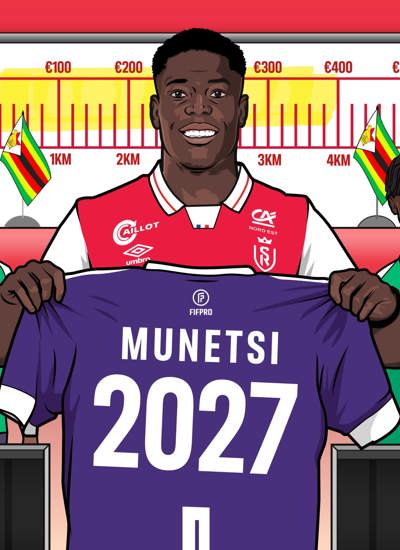
Nigeria international William Troost-Ekong is a defender with Greek Super League side PAOK. With the help of sustainable football boot company Sokito, the 30 year-old completed the first international carbon neutral transfer when he moved from England to Italy in January 2023, a process which he replicated for his most recent transfer to Greece in July 2023.
By William Troost-Ekong
A recent international break got me thinking about the logistics of transporting 25 players from their various cities around Europe to Nigeria in order to play a match. All that plane travel back and for such a short period of time; the life of a footballer is not kind to the environment.
On the other side of the coin, we all want to be there. We all want to play for our country and, in turn, Nigeria wants to ensure that they have access to the best possible selection of players from around the world.
Giving up international football would be a huge personal and professional sacrifice, and one that – if I’m being honest – I’m just not ready to make. As a footballer, like many other careers, avoiding air travel just isn’t viable. However, as a footballer, unlike with other jobs, you can use your platform to help raise awareness for the bigger issues at hand and encourage people to make small changes that can benefit the planet.
I wasn’t always very environmentally aware, and it wasn’t until I partnered with Sokito that I started to really consider not just the flaws of the football industry, but the active part that I could play in addressing them. Sokito, as an eco-friendly football brand, really opened my eyes to the changes that I could be making in my career that could help make the game more sustainable.
I'm quite fortunate that I get to spend time in Africa, especially in Nigeria, and as much as I love it, you are really confronted with the effects of climate change a lot more bleakly than in Europe. The air pollution, the water contamination – it has a direct impact on people’s quality of life, bringing illnesses and hardships that are impossible to ignore.
However, my main motivation to make a change came with being a father; I have three children under five, and I just feel a new kind of responsibility to give them the opportunity to enjoy all the things in life that I had access to. I want to leave the planet in a better place for them and the generations to come, whether that’s through considering what car I drive, how I use energy around the house, and how I raise awareness through my platform as a player.

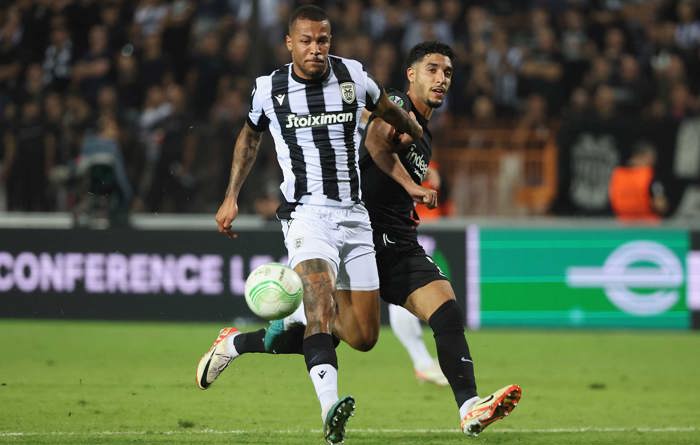
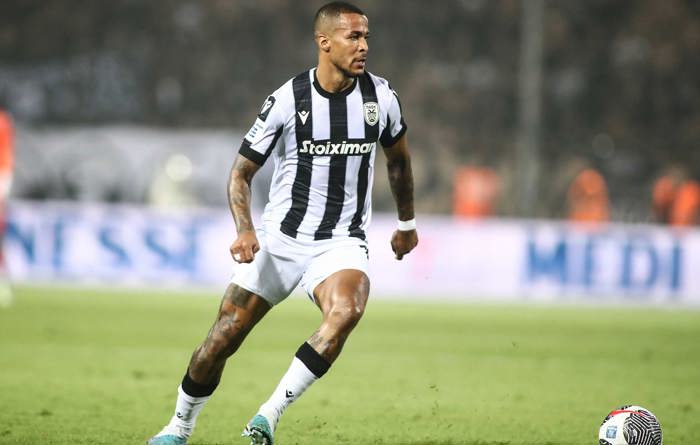
It was with this new mindset that I heard about Ben Mee travelling from Burnley to Brentford on a carbon neutral transfer, and it got me thinking about what that could look like on an international scale. Of course, there were a few more calculations that needed to be made, but along with Sokito I planned my transfer from Watford to Salernitana in the south of Italy to be as green as possible.
We calculated that I had amassed a total carbon footprint of just under one tonne, which we offset by planting trees through Alberami, a scheme that offers voluntary carbon offsets, and educates participating farmers in sustainable farming practices. I visited one farm in Torano Castello, around two hours outside Salerno, to plant an olive tree and learn about the impact of climate change on the land.
We took the same approach to my transfer to PAOK in Greece, which resulted in a total carbon footprint of 1.224 tonnes, which we have rounded up to 1.5 and are currently deciding on a project to balance out any negative environmental impact. I think it would be nice to do something here in Thessaloniki, partly because it reduces the need for any further travel, and I like the idea that my arrival can positively contribute to the local environment.
A few players have reached out to me to ask how they can go about setting up their own ‘green transfers’ and I’m hoping that in turn they inspire others to do the same, creating a snowball effect that the industry must sit up and take notice.
What if clubs planted trees every time they travelled for a European match? What if associations calculated the carbon footprint of each international camp and took steps to offset it?
As one player, I’m probably not making that much of an impact, but getting people talking about it is where we can make the real difference.
Of course, it’s one thing to talk about a single player on an economy class flight from Italy to Greece, and it's quite another to consider the entourage that accompany the high-profile transfers that take place on a private jet. I’m not judging: I understand that sometimes due to timing restrictions, or security measures, maybe these more dramatic forms of transport are necessary. But it would be good if we could take the time to consider what they mean for the environment.
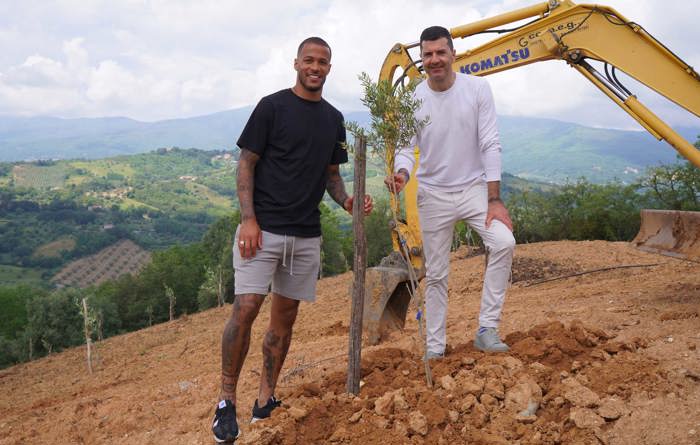
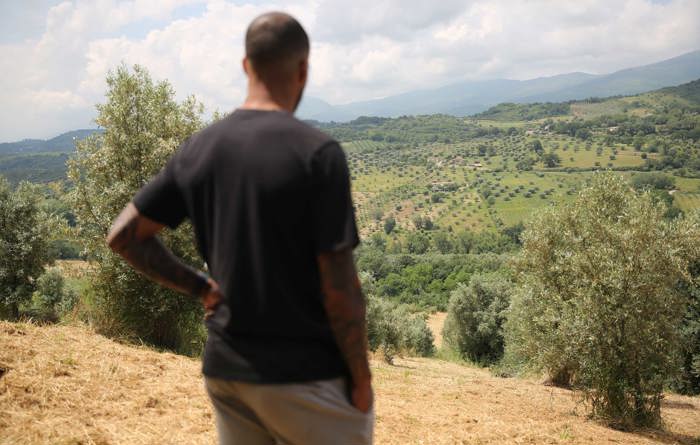
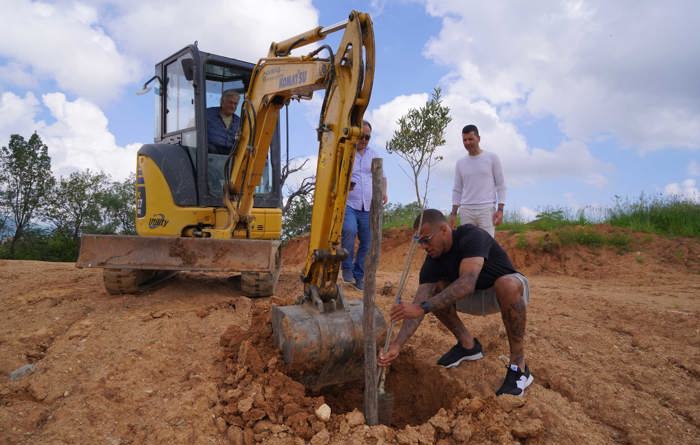
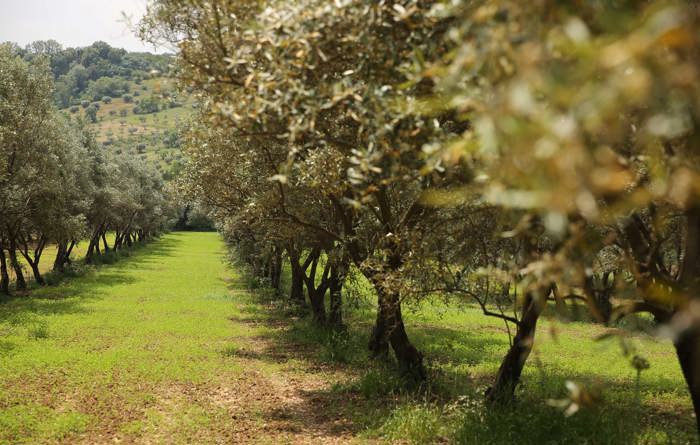
Perhaps the cost of offsetting the damage to the environment should be worked into the considerable budget that is clearly available. If clubs can shell out multi-millions for players, a fraction of that could be invested into the efforts to lessen the impact that their transfers could have on players. Or is it just a publicity stunt to inflate the importance of the transfer in the media? If so, it should be discouraged – so much so that people are shamed into making more rational decisions.
The fact is not everyone has the means to offset their own carbon footprint every time they travel, and that’s okay. I understand that while I am in a fortunate situation, in that I can afford to pay the extra costs, sustainability isn’t always affordable. I don’t necessarily want to inspire everyone to do exactly as I do, but rather reach out to create awareness of the changes that are reasonably within our grasp, even if that’s simply a fan reconsidering their travel options on match days.
I would love to inspire more players to individually work out their carbon footprint from travel and take steps to counteract this. Similarly, there are simple changes that individual clubs could look at to lessen their travel impact, and it would be great to see an open conversation take place around this, especially with the January transfer window just around the corner. However, the big dream would be for the governing bodies, such as FIFA or UEFA, to get on board and make environmental contributions a mandatory addition to any kind of travel within the game. If consideration of the environment was the responsibility of the many rather than the few, we could shoulder the burden a lot more easily.
Understanding our responsibility to the environment is not a one-size-fits-all solution and working out a balance is a learning curve for everyone that attempts it. When I travelled for international duty, I used to collect boots from the clubs I was at, with some very generous kitmen helping me source previous season’s models that would otherwise go to waste, and I would give them to boys and girls in Nigeria who wanted to play football but had no kit to do so.
“One player wearing recyclable boots might not make a world of difference, but drumming up awareness for the cause has the potential to create a truly magnificent knock-on effect.”
— by William Troost-Ekong

In my mind I was giving this equipment a second life, and so it was more sustainable than it might otherwise have been. But Jake, the creator of Sokito, made me realise that, although this was well-intentioned, it meant that these mostly plastic boots would ultimately end up in landfills in Nigeria, contributing to our ecological crisis. So, while giving kids boots that they can use is certainly an act to be encouraged, there was a second step to consider.
We started talking about how we could produce kit, specifically football boots, that would meet professional standards while being easily recyclable. The result was the Devista, Sokito’s first boot which is available for people to buy. They are also currently working on a second phase, which is hopefully going to be released in November. I’ve had quite a bit of input on the design, so I’m proud of what we’ve achieved and how Sokito’s ideas have been put into practice.
AFCON is kicking off at the start of next year, and it would be amazing if we could showcase the technology on such a huge platform. One player wearing recyclable boots might not make a world of difference, but drumming up awareness for the cause has the potential to create a truly magnificent knock-on effect. Imagine if recyclable materials became the new “must-have” component for the latest football boots? The impact would be incredible, and it would really kickstart the conversations that we need to be having about sustainability in sports.
The key thing about making a difference as a player is leading by example, and I feel lucky that I have a chance to wear these boots in my own career, and I can only hope that others – perhaps with bigger platforms than my own – will choose to follow.
Football creates such a close and passionate community, and I think within that there’s a huge potential to drive positive change – whether that’s high-profile players creating a demand for environmentally friendly football boots, or fans car-sharing on their way to the stadiums. Yes, I want to be one of the players that inspires a positive difference in my own way, but even more than that, I want to see what this sport is capable of when we all work together.
FIFPRO's Community Champion series highlights a professional footballer’s activities that positively impact the lives of others. Discover more HERE.


